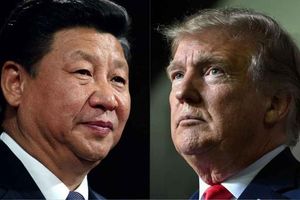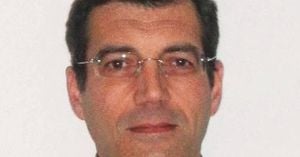In a significant political development, South Korea's main opposition party, the Democratic Party of Korea, has officially announced Lee Jae-myung as their candidate for the presidential election scheduled for June 3, 2025. Lee, who accepted the nomination on April 27, stated, "I am not just a candidate of the Democratic Party, but also a representative of all people who want to end the rebellion, overcome the crisis, and create unity and happiness." His selection came with nearly 90% of the votes in the primary election, easily surpassing two other candidates.
Lee Jae-myung, a progressive leader, is known for advocating economic equality and has expressed intentions to improve relations with North Korea. He now emerges as a strong contender to succeed former president Yoon Suk-yeol, who was ousted from office after attempting to declare a state of emergency late last year. The former leader's controversial actions have plunged the country into political and economic turmoil.
In his acceptance speech, Lee compared Yoon's attempts to impose emergency rule to actions taken by past dictators. He pledged to guide the nation out of its current political and economic upheaval. Following the Constitutional Court's ruling earlier this month that removed Yoon from office, South Korea is gearing up for a new presidential election.
Lee has been leading in opinion polls for several weeks, outpacing his main rival from the People Power Party, the second largest conservative party in the country. The People Power Party is expected to announce its candidate on May 3. Lee's rise in popularity coincides with the ruling party's struggle to regain public trust after Yoon's controversial emergency measures.
This marks Lee's third attempt at securing the presidency after narrowly losing to Yoon in the 2022 election, where both candidates received the closest vote share in South Korea's democratic history. In the 2017 primaries, Lee had finished third.
However, Lee's candidacy is not without challenges. He currently faces five legal cases related to corruption and other criminal charges, including bribery and a $1 billion real estate scandal. Should he win the election, it is anticipated that these proceedings could be halted due to presidential immunity.
As the political landscape shifts, the focus is also on South Korea's burgeoning semiconductor industry. On April 28, 2025, South Korea was designated as a preliminary destination for chip technology collaboration by the United States. Mr. Lee Chang-yang, the Minister of Trade, Industry, and Energy, announced this development, emphasizing that the U.S. views South Korea as a key partner in securing the semiconductor supply chain.
Mr. Lee mentioned that about 90% of the initial investment concerns have been addressed, leaving only two issues unresolved. He stated that the aim is not just to create a chip alliance but also to provide comprehensive support and satisfaction, highlighting South Korea's advanced chip technology.
In conjunction with this, South Korea and the U.S. plan to establish six working groups to discuss various trade issues, including tax measures and investment cooperation. These groups will focus on economic security and investment collaboration, with discussions expected to commence next week. This initiative reflects the closest cooperation between the two nations in the semiconductor sector since 2022.
In a related announcement, Vice Minister of Economy and Finance Park Sung-taek stated that the partnership would also address language barriers and unfamiliar terms in the economic and investment sectors to facilitate smoother cooperation. This comes after the two countries reached a "package deal" regarding new U.S. tax measures and economic collaboration during recent trade negotiations.
Amid these developments, Lee Jae-myung has committed to introducing a Production Tax Credit of up to 10% for domestically produced semiconductors if elected. This initiative aims to support the semiconductor industry and protect domestic supply chains, especially in light of concerns over U.S. trade policies under former President Donald Trump.
Lee's promise of a tax credit reflects a growing trend among nations to bolster their semiconductor industries amid global supply chain uncertainties. The South Korean government aims to finalize the selection of preliminary facilities by May 3 to support the chip industry, with an investment requirement of approximately $1 billion.
As the election date approaches, Lee's campaign is gaining momentum, buoyed by his proposals and the current political climate. His ability to navigate the legal challenges he faces while also addressing the pressing economic issues will be crucial in determining his success in the upcoming election.
With the semiconductor industry at the forefront of economic discussions, the outcome of the presidential election could have far-reaching implications for South Korea's technological future and its relationship with the United States.




